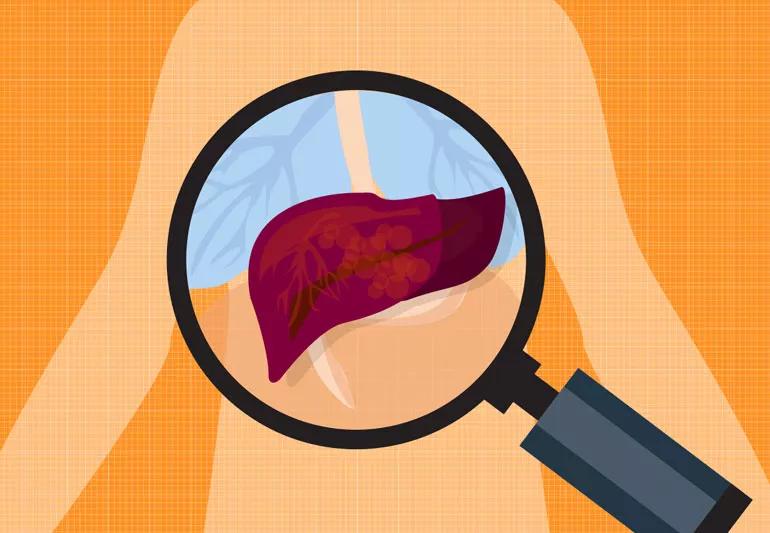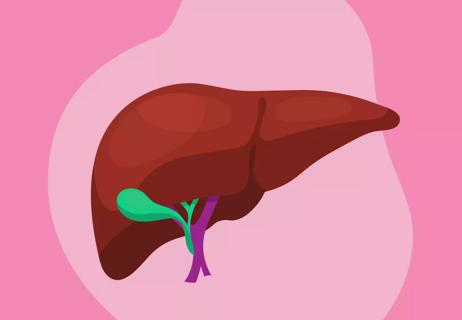Liver failure boosts your risk of liver cancer

Your liver does a lot to keep you healthy, especially acting as your body’s filter to clear out toxins. But when you work it too hard — with heavy drinking, chronic viral infections or eating an unhealthy diet for too long — it can develop its own health problems.
Advertisement
Cleveland Clinic is a non-profit academic medical center. Advertising on our site helps support our mission. We do not endorse non-Cleveland Clinic products or services. Policy
Few people know when their liver is failing, says gastroenterologist Carlos Romero-Marrero, MD. And that can put you more at risk for serious illness.
“People with liver failure are more likely to develop liver cancer,” he says. “But, most aren’t even aware of what causes liver failure, much less the symptoms.”
Here, Dr. Romero-Marrero explains four of the most common signs of liver failure and possible treatments. See your doctor if you notice any of these issues, he advises.
This is the most common sign of liver disease, appearing in 50 percent of people who have cirrhosis, a condition in which scar tissue replaces healthy liver tissue.
Accumulating fluid may cause distension in your abdomen or swelling in your legs.
This happens when high blood pressure develops in your liver veins or when your liver is unable to make albumin, a protein that prevents leaks from your bloodstream into tissue.
Treatment options: A low-sodium diet may help alleviate mild fluid retention. For moderate-to-severe retention, your doctor may prescribe diuretics, commonly known as “water pills.”
Severe cases often call for paracentesis, using a needle to drain abdominal fluid, Dr. Romero-Marrero says.
Advertisement
This condition causes darker urine and a yellowish tint in skin or the whites of your eyes. It appears when bilirubin, a pigment that forms when red blood cells break down, builds up in your bloodstream. A healthy liver absorbs bilirubin and converts it into bile. Your body then excretes it in stool.
Treatment options: Jaundice is a severe sign of liver failure, Dr. Romero-Marrero says. If you have jaundice, your doctor may evaluate you for a liver transplant.
Your liver typically cycles about 25% of your blood from the portal vein. But cirrhosis creates an opportunity for bleeding. You may vomit blood or notice blood in stool or rectal bleeding.
“Usually, the flow through the liver is like driving through a high-speed highway — it’s quite rapid. But, when you have cirrhosis, that highway, because of scarring, becomes a bumpy road or a big traffic jam,” he says. “Consequently, the blood tries to find detours.”
Those detours send blood to your spleen which enlarges as it tries to relieve the congestion. Varicose veins may develop in your esophagus and stomach, and these enlarged veins can also easily bleed.
A healthy liver produces clotting proteins. But, a sick liver can’t and more bleeding results. An enlarged spleen collects platelets from your bloodstream.
A low platelet count makes you more susceptible to nosebleeds and bleeding gums.
Treatment options: If you’re vomiting blood, go to the emergency room immediately. Doctors will evaluate and stop your bleeding using an upper endoscopy, Dr. Romero-Marrero says.
If bleeding is severe, they may implant a stent to connect veins running in and out of your liver and create a new pathway for the blood, he says.
When your liver is unable to filter toxins, they may travel to your brain. The resulting condition, known as hepatic encephalopathy, can cause confusion, memory problems, lethargy and coma.
Treatment options: The standard treatment is the laxative lactulose, Dr. Romero-Marrero says. It binds to toxins in your colon and flushes them out before they get into your bloodstream.
Dr. Romero-Marrero offers four tips for keeping your liver healthy:
Ultimately, remember that alcohol abuse isn’t the only cause of liver failure. Take care of your body and control chronic conditions to keep your liver healthy, he says.
Advertisement
Advertisement

Sign up for our Health Essentials emails for expert guidance on nutrition, fitness, sleep, skin care and more.
Learn more about our editorial process.
Advertisement

Maintaining a healthy weight, focusing on exercise and eating a well-balanced diet can improve your overall metabolic health

Stay on top of your care with regular check-ups, routine tests and healthy habits

Your doctor may use bloodwork and an ultrasound to determine your diagnosis

Focus on eating heart-healthy foods and consider intermittent fasting to help prevent and reduce liver inflammation

Maintaining a healthy weight, adjusting what you eat, exercising and avoiding alcohol can help improve your liver health

Partial healing begins a few weeks after you quit drinking

At any age, women can be more susceptible to cirrhosis than men

Even small moments of time outdoors can help reduce stress, boost mood and restore a sense of calm

A correct prescription helps your eyes see clearly — but as natural changes occur, you may need stronger or different eyeglasses

Both are medical emergencies, but they are very distinct events with different causes